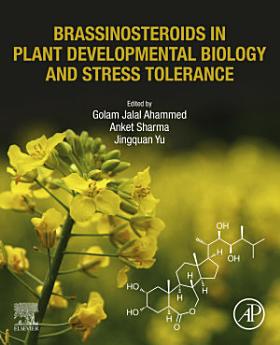Brassinosteroids in Plant Developmental Biology and Stress Tolerance
About this ebook
About the author
Dr. Golam Jalal Ahammed is an Associate Professor at the Department of Horticulture, College of Horticulture and Plant Protection, Henan University of Science and Technology, Luoyang, China His major research interests include plant stress physiology, phytohormones, climate change effect on plants, and environmental pollution. Dr. Ahammed was awarded two research grants for International Young Scientists by the National Natural Science Foundation of China. He was also a recipient of several grants from China Postdoctoral Science Foundation. Currently, Dr. Ahammed is actively involved in unraveling the role of melatonin in plant stress response and is a Senior Editorial Board Member of Scientific Reports (Springer Nature), and an Associate Editor of AoB Plants (Oxford Academics), and Journal of Plant Growth Regulation (Springer).
Anket Sharma is currently working as a Visiting Research Scientist at University of Maryland, College Park, USA & as an Associate Professor (Adjunct) at Zhejiang A & F University, Hangzhou, China. Dr. Sharma has more than 100 research articles to his credit. Dr. Sharma Completed his M.Phil and Ph.D. from Guru Nanak Dev University, Amritsar, Punjab, India.
Prof. Yu is Director, Key Laboratory of Horticultural Plants Growth, Development and Quality Improvement, the Ministry of Agriculture, China Professor, Department of Horticulture, Zhejiang University. He is one of the leading scientists in the area of brassinosteroid research and has received a number of honors and awards such as Excellent Youth Instructor (2007), Yangtze River Scholar (2007), National Natural Science Award (2006), Science and Technology Advancement Award (2006), Science and Technology Advancement Award of Zhejiang Province (first class, 2005), National Outstanding Youth Scholar (2002), and so on. He has published more than 200 research articles in peer-reviewed journals, and is an Editorial Board Member of Scientific Reports, Plant Biology Section and Associate Editor of Frontiers in Plant Science.




